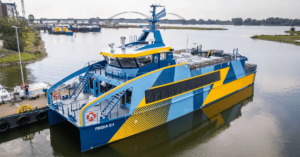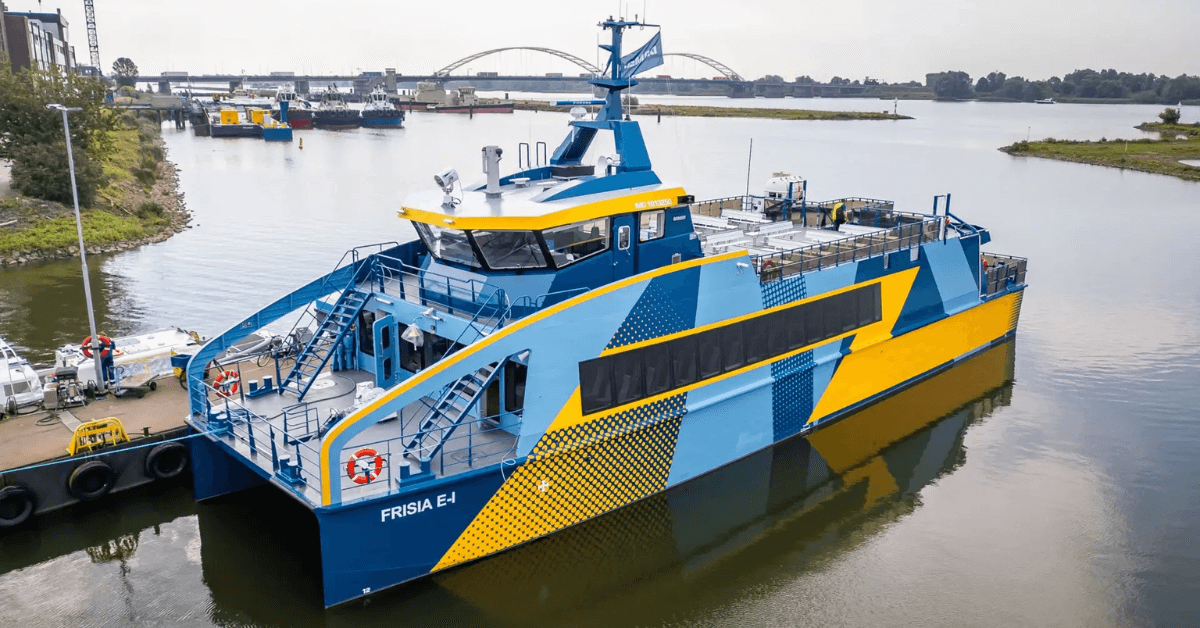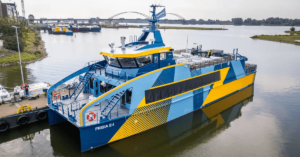
7 Cases Of Armed Robbery Reported In Singapore Strait In 2025
January 29, 2025
Fire Onboard Container Ship Forces Crew To Abandon It In Red Sea
January 29, 2025

Germany has welcomed its first fully electric catamaran ferry, the E-Kat, built by the Dutch shipbuilder Damen Shipyards Group.
The vessel was officially handed over to its operator, AG Reederei Norden-Frisia, on January 15, 2025. It will serve the route between Norddeich and Norderney in the East Frisian Wadden Sea, offering a sustainable alternative for passenger transport.
The 32-meter-long E-Kat ferry is designed to carry up to 150 passengers and operate at speeds of up to 12 knots.
Built with lightweight aluminium twin hulls, it has a shallow draft of just 1.2 meters, making it suitable for the region’s waterways.
The ferry is powered by two 600 kW electric motors driving propellers, supported by two 75 kW electric bow thrusters for enhanced manoeuvrability.
The ferry is optimised for a 30-minute crossing, with 28 minutes allocated at each port for passenger embarkation and disembarkation.
During this time, it will recharge its batteries using shore power connections. The vessel’s battery system, developed by Dutch company EST-Floattech, features Octopus High Energy battery technology with a maximum capacity of 1.8 MW.
A full charge allows for a round trip of about 11 kilometres (7 miles), ensuring entirely CO2-free operations.
Following its handover, the E-Kat was transported from Rotterdam, Netherlands, to Norddeich-Norden, Germany, on January 22, 2025.
The journey involved towing the vessel to Germany’s Borkum Island before it proceeded to Norderney and Norddeich under its electric propulsion.
The ferry completed its acceptance trials, including full-power charging tests, confirming its readiness for operation.
AG Reederei Norden-Frisia has integrated the E-Kat into its sustainability program, aiming for zero emissions in its operations.
The company has installed photovoltaic systems at its facilities in Norddeich and Norderney to provide renewable energy for charging the ferry’s batteries.
A representative from Damen Shipyards, Joschka Böddeling, stated that the E-Kat is a unique ferry, expressing confidence that it will serve reliably for many years.
The vessel is expected to operate up to eight round trips daily during peak season, providing an eco-friendly transport solution while reducing the environmental impact of passenger ferry operations.
Reference: Damen Shipyards
Source: Maritime Shipping News


